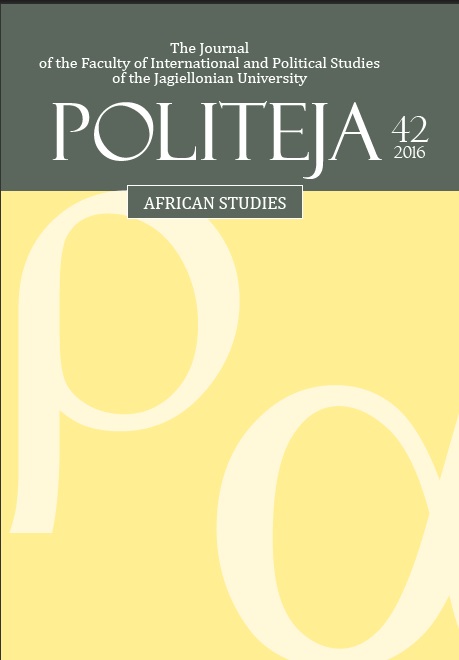How Theoretically Opposite Models of Interethnic Power‑Sharing Can Complement Each Other and Contribute to Political Stabilization: The Case of Nigeria
How Theoretically Opposite Models of Interethnic Power‑Sharing Can Complement Each Other and Contribute to Political Stabilization: The Case of Nigeria
Author(s): Krzysztof TrzcińskiSubject(s): Politics / Political Sciences, Politics, Economic policy, Developing nations
Published by: KSIĘGARNIA AKADEMICKA Sp. z o.o.
Keywords: hybrid political system; interethnic power‑sharing; consociationalism; centripetalism; Nigeria
Summary/Abstract: The aim of this article is to demonstrate the thesis that the stabilization of Nigeria’s complicated political situation is furthered by the functioning in that country of institutions based on two models of interethnic power‑sharing2 – consociationalism and centripetalism – and that the two are to some extent complementary in Nigerian practice, despite the fact that political theory sees the two as opposites of each other. The article begins with a short analysis of the political situation in Nigeria. This is followed by a presentation of the problem of defining the notion of political stability and an assessment of the same in the Nigerian context. The article then goes on to discuss the nature of centripetalism and consociationalism and of specific centripetal and consociational institutions involved in the stabilization of the political situation in Nigeria. The article ends with the author’s conclusions about the initial thesis.
Journal: Politeja - Pismo Wydziału Studiów Międzynarodowych i Politycznych Uniwersytetu Jagiellońskiego
- Issue Year: 13/2016
- Issue No: 42
- Page Range: 53-73
- Page Count: 21
- Language: English

